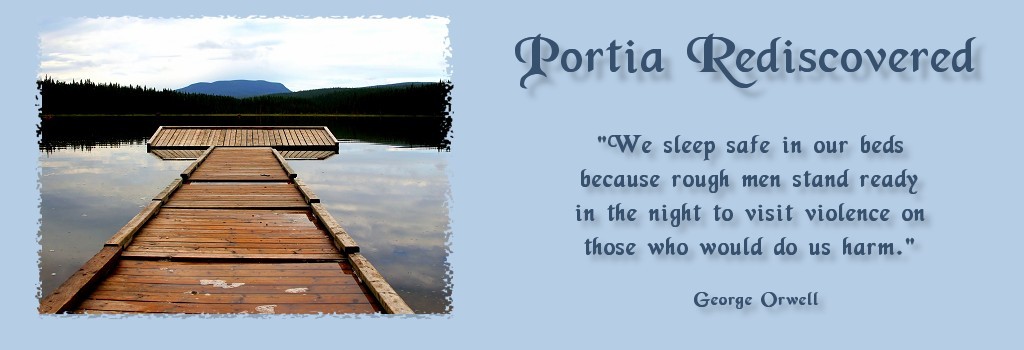
Talk is cheap. God forbid I ever be accused of such behavior, so here is part one of my review of Maureen Dowd's Are Men Necessary?
Last week, against all my better instincts, I finally picked up a copy of Dowd's latest attempt at effectually emasculating the male species. Even as I was rung up at the counter, I found myself desperately wanting to have a hood just to pull it over my eyes, as the sales associate was male. That, or I wanted to make a formal announcement, "People of Borders, I, (state full name and occupation), do not agree with this book! I am only purchasing it for the sake of publicly criticizing the author in hopes of scoring some attention from the press. I, in fact, believe men are entirely essential to our existence, and I rather like them, too!"
But, as that was not really feasible, I found myself checking out, and hurriedly leaving the bookstore. I do have to admit that I love the cover. The artwork is truly wonderful. But aside from that, no more compliments!
Enough background fluff. Here's the review. My dive into the abyss that is Maureen's mind and writing (only to find it's more like a wading pool. But I digress!)
Pulitzer Prize winning journalist (for her column about Pres. Clinton and Monica Lewinsky, mind you), and the left's answer to Ann Coulter (though older by at least 15 years; they'll never win) has finally finished her piece de resistance regarding her life's observations, frustrations and questions regarding the dance between the male and female species. Her first sentence: "I don't understand men." Yes, ladies and gentlemen, this is the culmination of over half a century in journalism. She continues: "I don't even understand what I don't understand about men."
But she's determined to at least subject us to 338 pages of trying to figure out what she doesn't understand about her lack of understanding.
She splits the book up into sections, rather than chapters. The first is entitled, "How to set your bear trap in the mink department of Bergdorf's." This was taken from books her mother gave her about men when she was my age. Silly mom.
My first impression after reading about 20 or more pages was that Maureen didn't have a problem with men. No, she actually has a problem with humankind. It appears she's rather unhappy with both sexes. That is, unless they're just like her: a never-married single who still doesn't have a handle on men and hates women who are "happily married."
She begins the book by talking about life in the 60's, the rise of feminism, and the shelving of such books as How to Catch and Hold a Man. But twenty years later saw a slightly different story.
I knew things were changing because a succession of my single girlfriends had called, sounding sheepish, to ask if they could borrow my out-of-print copy of How to Catch and Hold a Man.
With a serious male shortage developing, a distasteful fact loomed in the late '80's: Women were going to have to start being nice to men again.
She continues through a chronological study of mating habits of the western culture as exemplified through Hollywood, on and off screen, as well as other public relationships. (See Marilyn Monroe/JFK, Scarlett O'Hara/Rhett Butler, etc.)
The premise of the book, or at least one of a few, begins to take form at this point. Women are predominantly helpless victims, never at fault for failure and always the inconvenienced. She cites quotations from books and articles written in the 50's for the sake of showing the ridiculous hoops that women felt they had to jump through to acquire the affection of a worthy man. Never does she mention the hurdles men would have to face to win the heart of a woman. I suppose that would be ludicrous. Men don't have any part in the dating process anyway. Right?
At the onset of the book, her greatest concern seems to be that feminism has been completely lost on this generation and she sees a downward spiral of younger women looking to the past as a standard for dating/courting/marriage. According to Dowd, women have become more demure, passive and soft. (Apparently she's completely unfamiliar with Christina Aguilera, Pink, and any other female under 18 these days.)
She's in a quagmire (to use a favorite word of the left). She loves the sophistication of the 40's--the cocktail dresses, the classy drinks, the endless flirtation in well groomed clothing. But she hates the fact that women then weren't "empowered" as they are today and fears we're returning there.
Her book is somewhat cleverly written, though her prose becomes quite cliched after a few minutes. She devotes little time to many subjects, which makes this incredibly difficult to briefly review. At the end of section one, the take-away is, "We're no better off than we used to be. We still don't have any answers."
More to come. That wasn't much of a review. More of a description. After I've satisfactorily summarized her writing, I'll be able to address her arguments.
Posted by Portia at January 21, 2006 01:13 PM | TrackBack